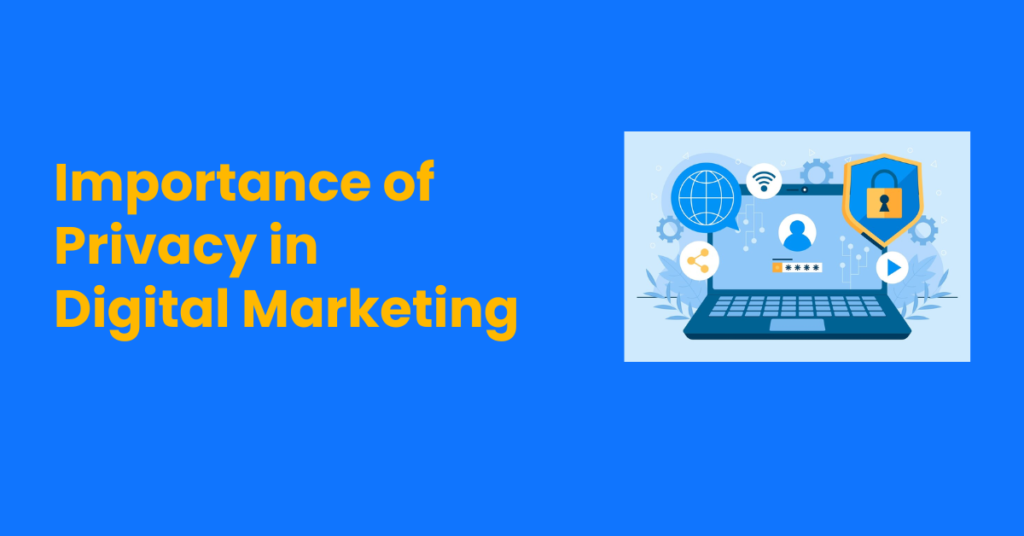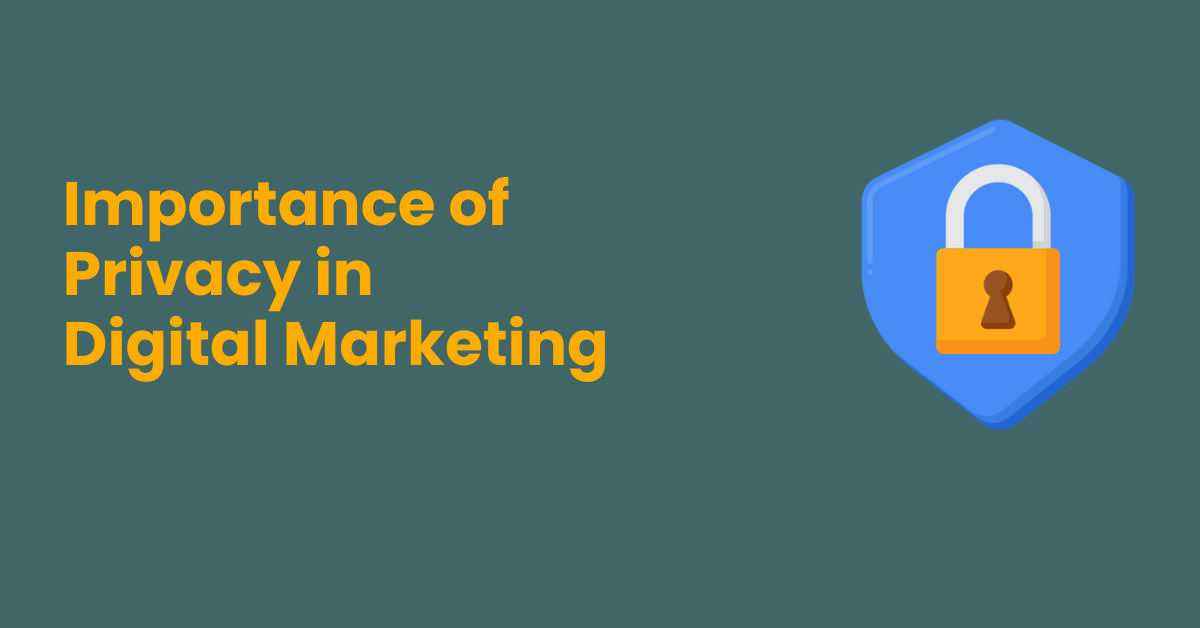In today’s digital world, data privacy is more than just a regulatory concern—it’s a crucial factor that can determine a brand’s reputation, trustworthiness, and success. With digital marketing relying heavily on data to create personalized customer experiences, balancing targeted campaigns with robust data protection practices has become essential. This blog explores the importance of data privacy in digital marketing, the risks associated with poor privacy practices, and best practices for brands to ensure consumer data remains safe and secure.
Why Data Privacy Matters in Digital Marketing
1. Building Customer Trust
– In an era where data breaches and misuse of personal information are becoming more common, consumers are increasingly concerned about their privacy. Prioritizing data privacy is one of the most effective ways to establish trust with your customers. When customers feel confident that their data is handled responsibly, they are more likely to engage with your brand, share information, and even make purchases.
2. Compliance with Regulations
– Numerous regulations around the world, such as the General Data Protection Regulation (GDPR)in Europe, California Consumer Privacy Act (CCPA) in the United States, and other local privacy laws, mandate how businesses must collect, store, and process personal data. Non-compliance can result in heavy fines and legal action, making it essential for brands to stay informed about relevant data privacy laws.
3. Enhancing Brand Reputation
– Data privacy is not just a legal requirement; it’s a component of your brand’s reputation. Companies that prioritize data privacy are viewed as ethical and responsible, which can create a positive image in the eyes of consumers. Conversely, brands that are lax with data security can face backlash, decreased customer loyalty, and even boycotts if a data breach occurs.
4. Improving Customer Relationships
– By respecting customer privacy, brands can foster stronger and more authentic relationships. Transparent data collection practices, clear opt-in forms, and easy access to privacy settings allow customers to feel in control of their data, leading to a more positive user experience. When consumers know they can trust your brand, they’re more likely to stay loyal and engage with your marketing efforts.
Risks of Ignoring Data Privacy in Digital Marketing
1. Data Breaches and Security Issues
– Data breaches can have devastating consequences for businesses and consumers alike. Beyond potential fines, a data breach can lead to lost revenue, increased operational costs, and damage to brand reputation. Hackers often target sensitive customer information, such as names, addresses, payment details, and behavioral data. The fallout from a data breach is often long-lasting, and regaining consumer trust can take years.
2. Legal and Financial Consequences
– Data privacy violations come with hefty penalties. Companies like Google, Facebook, and British Airways have faced millions in fines for mishandling user data. The financial hit, combined with potential legal battles, can have a significant impact on a business’s resources and operations. Legal issues can also lead to costly changes in data collection and storage practices to meet regulatory standards.
3. Loss of Customer Trust and Loyalty
– Failing to prioritize data privacy can erode trust among your customer base. In fact, a study from PwC found that 85% of consumers won’t do business with a company if they have concerns about its security practices. When consumers lose faith in your brand’s ability to protect their information, they may turn to competitors who demonstrate greater respect for privacy.
4. Negative Impact on Marketing Effectiveness
– Privacy violations or unethical data practices can cause users to be more cautious with sharing information, impacting the quality of data collected for marketing purposes. In turn, this can make it more challenging to create accurate customer profiles and deliver personalized marketing, affecting campaign performance.
Best Practices for Data Privacy in Digital Marketing
1. Practice Transparency with Data Collection
– Be open and clear with customers about what data you’re collecting, why you’re collecting it, and how it will be used. Use straightforward language in your privacy policies, cookie banners, and opt-in forms to ensure customers fully understand what they are agreeing to.
2. Implement Data Minimization
– Only collect the data you genuinely need to achieve your marketing goals. Avoid gathering excessive information or irrelevant personal data. For instance, if you only need an email address for a newsletter, there’s no need to request other personal details. Data minimization reduces the risk of data breaches and enhances user trust.
3. Obtain Explicit Consent
– Ensure that users provide explicit consent before collecting or using their personal data. This may involve double opt-in forms, where users confirm their consent through a follow-up email. Additionally, give users the option to modify or withdraw their consent at any time.
4. Strengthen Data Security Measures
– Protecting customer data involves securing your digital assets and infrastructure. Use encryption, secure your servers, and restrict access to sensitive information within your organization. Regularly review your data security practices and conduct security audits to identify and resolve potential vulnerabilities.
5. Allow User Control Over Data
– Give users control over their personal data, including the ability to access, edit, or delete their information. Implement self-service privacy settings and offer easy ways for users to opt out of certain data collection practices. Not only is this a legal requirement under many privacy regulations, but it also empowers users to make decisions about their own data.
6. Use Anonymized Data for Marketing Insights
– When analyzing user behavior, consider using anonymized or aggregated data. This reduces privacy risks while still allowing you to gather valuable insights into your target audience. For instance, instead of tracking individual users, you might analyze group-level data trends, such as customer demographics or common behavioral patterns.
7. Stay Updated on Data Privacy Laws and Regulations
– Data privacy laws are constantly evolving. Ensure that your team is informed about the latest regulations in your target markets, whether it’s GDPR, CCPA, or other regional laws. Regular training on data privacy compliance is essential for marketers to avoid unintentional breaches.
8. Create a Data Breach Response Plan
– In the event of a data breach, have a plan in place for quick and transparent communication with affected customers. Outline the steps your team will take to contain the breach, mitigate the damage, and notify relevant authorities if required. Clear and honest communication can help maintain trust, even in the aftermath of a breach.
The Future of Data Privacy in Digital Marketing
As privacy concerns continue to grow, we’re seeing shifts toward more privacy-friendly marketing approaches, such as first-party data and contextual advertising. Platforms like Google are phasing out third-party cookies, while other companies are exploring privacy-first data practices. Moving forward, brands must adapt to these changes by focusing on ethical data practices and respecting users’ right to privacy.





